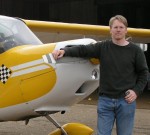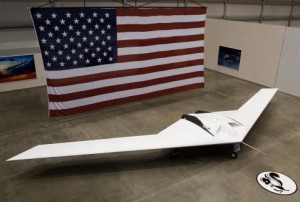Disovering Engineering: Predicting the Future
This week First Book is sharing stories about science and engineering from some of our friends at Lockheed Martin. Today’s guest blogger is Brian Hershberger, an aeronautic engineer with Lockheed Martin’s Advanced Development Programs (Skunk Works) in Palmdale, Calif.

When I visit a school to discuss engineering I always ask the students, “What do engineers do?” The answer: Predict the future!
As an engineer at the Skunk Works in Lockheed Martin’s Aeronautics sector I have been fortunate to participate in multiple advanced development projects. We start with customer problems and apply physical principles – with a healthy dose of ingenuity – to create vehicle designs and predictions that solve those problems. The collaborative efforts of many skilled engineers go into every project we tackle and we depend on the efforts of teachers and parents to keep our country on the leading edge of innovation in technology and science.
My personal engineering journey started with aviation. I grew up around aircraft and have always been fascinated with flight. My brother and I used to “fly the couch” by rearranging the cushions into a tandem cockpit guided by Dad’s expired navigation charts. These experiences led to a broader fascination with how the world works; certainly in the duality of rigid rules (physics) and more flexible rules (communication and leadership) that frame all engineering challenges.
Teachers that inspired my engineering cognizance did so by connecting observations in the physical world to the underlying principles in engaging and thought-provoking demonstrations. In classroom visits supported by Lockheed Martin we strive to demonstrate simple, interactive examples that highlight engineering perspectives. Teamwork, communication, critical thinking and prediction of future events based on critical thinking are some of the topics we address.
A favorite demonstration involves raw eggs and a mouse trap. The question: “How does the egg break; when it first hits the trap or when the wire strikes the shell?” With the event caught on a high speed camera, and sometimes a bit of egg on my face, the result is always the former. Getting students excited about exploring their world and asking why, why, why, wherever their talents lie, is a responsibility we all share.
If you’re a student, what do you think of Brian’s job? What do you like (or dislike) about studying science and math in school?

